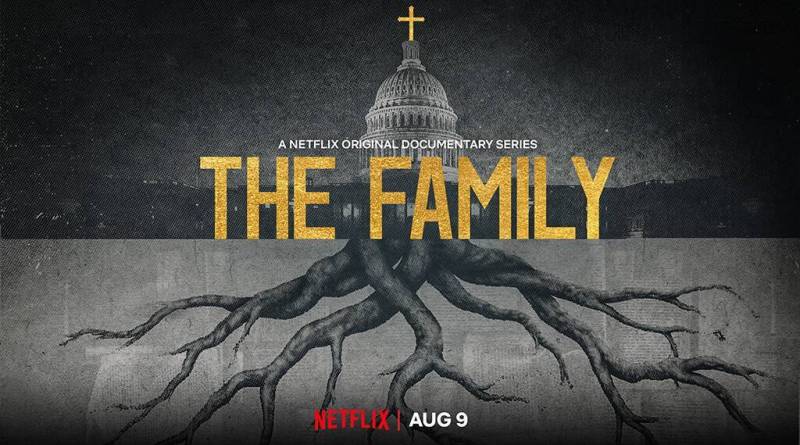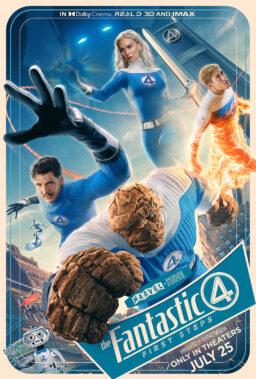It’s very difficult to wrap one’s mind around an underground group of religious leaders who have influenced world politics for generations, and I’m not sure Jesse Moss ever really figured out how to do so with his often-fascinating-but-frustrating Netflix docu-series “The Family.” The five-part series from the director of the brilliant “The Overnighters,” one of the best documentaries of the decade, jumps around so much with the timeline of its subject and the way it weaves its fingers through the world that it becomes almost exhausting. It’s like playing cards with someone who is constantly taking your hand and reshuffling it. I think that’s part of Moss’ intention—to make it clear that he’s not talking about a small group of people as much as the foundation of American and international politics, and how it’s been built by a deeply religious organization who has literally said, “We do our best work invisibly.” It’s like pulling back a rock to see all of the scattering ants. Try concentrating on one, and you won’t really see the bigger picture. But the looking at the entire thing becomes a blur of activity.
Based largely on two books by Jeff Sharlet, who is also the project’s best interview subject—The Family: The Secret Fundamentalism at the Heart of American Power and C Street: The Fundamentalist Threat to American Democracy—“The Family” details the history and reach of a Christian organization run by the elusive Doug Coe. With an express purpose of bringing religious doctrine into American politics, Coe became one of the most powerful people in the world through events like the National Prayer Breakfast and the infamous house on C Street, where politicians lived and prayed together. Often using stories that Sharlet uncovered through his excellent investigative journalism, Moss details the impact of religion on politics, especially when it’s not transparent. Of course, leading a faithful and even religious life isn’t the problem—and Moss is careful not to castigate Christianity itself—but when it leads to illegal activities or influences policy in ways that other groups are not allowed then it erodes democracy itself.

Fascinating stuff, right? Surely, and “The Family” traces Coe and his colleagues’ influence across generations from Dwight D. Eisenhower at the first National Prayer Breakfast—and how DDE saw Christianity as a way to publicly denounce those Communist heathens—to how the group views Donald Trump, clearly not a man who can quote the Bible but whom the faithful can convince themselves was “chosen” for leadership. The most fascinating repeated anecdote is one of the sheep and the wolf. Historically, churches have opened their doors to the sheep. After all, the meek shall inherit the Earth, right? Coe and his cohorts are more interested in the wolf. Who will care for him? Who will guide him? Who will offer him forgiveness, and what will be expected in exchange for that forgiveness?
Again, this is all incredibly interesting, but “The Family” struggles to connect the best points together and offer a cohesive vision. It’s the difference between “existence” and “insight.” Great political documentaries don’t just expose, they offer analysis of what they’re exposing. “The Family” puts the dots on a map, and then almost steadfastly refuses to connect them. How does the existence of The Family impact policy and decision-making on Capital Hill? And how are C Street, Marina Butina (a Russian operative who attended the National Prayer Breakfast), and Donald Trump connected beyond all being touched by the Family in some way?
Moss leaves a lot of this open to interpretation, but the result is a project that can feel like an information dump more often than a film. It’s often like one of those conspiracy theory videos that throws out a ton of information but never shapes it into something with meaning. And, in the end, that will make it too easy to dismiss for the people who should care about exactly who is influencing the choices that impact the entire world. It’s almost as if Moss and his team didn’t want to ruffle too many feathers—a shot in the finale comparing the words of a Family supporter to the Third Reich is jarring because so little of the series has been as direct to that point. I wanted to watch that version of “The Family”—one that takes both Republicans and Democrats to task for allowing a group this powerful to impact their decisions in a way that resembles how tyranny has risen in the past. The subject matter of Moss’ series isn’t going anywhere anytime soon—in fact they’re arguably more powerful than ever on the world stage—so what happens now that we know about it? It’s a question that “The Family” seems unwilling, or perhaps unable, to answer.
All episodes screened for review.












